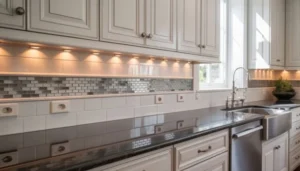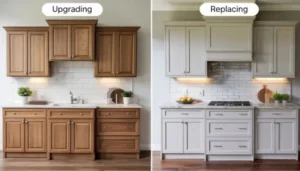A Comprehensive Guide on How to Remodel a Camper
Remodeling a bathroom is an exciting endeavor that can breathe new life into one of the most used spaces in your home. Whether you’re updating fixtures, retiling the shower, or completely overhauling the layout, it’s essential to consider the legal requirements before diving into your renovation project. One of the key questions that often arise is whether you need a permit to remodel your bathroom.
The answer to this question depends on several factors, including the extent of the renovations, your location, and local building codes. While minor cosmetic changes such as painting, replacing faucets, or updating light fixtures typically don’t require permits, more substantial alterations may necessitate official approval from your local government or building authority.
So, when exactly do you need a permit for a bathroom remodel?
Understanding Permit Requirements
Understanding permit requirements is important for following the rules and regulations when starting a project or event. Whether you’re building something, hosting an event, or starting a business, you’ll likely need permits. Knowing what permits you need can help you avoid problems and fines. This guide will explain the basics of permit regulations, including the types of permits you might need and how to apply for them.
Structural Changes: If your bathroom remodel involves structural changes such as moving walls, expanding the space, or altering the plumbing or electrical systems, you will likely need a permit. Structural modifications can impact the integrity of your home and must comply with building codes to ensure safety.
Plumbing and Electrical Work: Installing new plumbing fixtures, rerouting pipes, or upgrading electrical wiring all require permits. These aspects of a bathroom remodel are critical for functionality and safety, and improper installations can lead to costly repairs or even pose safety hazards.
Changes to Ventilation: Proper ventilation is essential in a bathroom to prevent mold, mildew, and moisture-related issues. Installing or modifying ventilation systems, such as adding exhaust fans or venting ducts, may require permits to ensure compliance with building codes.
Changes in Floor Plan: If you’re reconfiguring the layout of your bathroom by moving fixtures like the toilet, sink, or shower, you’ll likely need a permit. Altering the floor plan can impact plumbing, structural support, and accessibility, necessitating official approval to ensure compliance with regulations.
Benefits of Obtaining Permits
Obtaining permits comes with several advantages. Firstly, it ensures that your project or event follows safety and legal standards set by your local authorities, keeping everyone safe. Secondly, having permits helps you avoid fines and legal troubles. Thirdly, permits give confidence to investors, customers, and neighbors that your project is legitimate and responsible. Lastly, permits make communication with authorities easier and demonstrate your commitment to following regulations, enhancing your credibility.
Compliance with Building Codes: Building codes exist to safeguard against unsafe construction practices and ensure that renovations meet minimum standards for safety and structural integrity. Obtaining permits helps ensure that your remodel complies with these regulations, reducing the risk of hazards and costly mistakes.
Protection During Inspections: Permitted projects typically undergo inspections by qualified inspectors to verify that the work meets code requirements. Inspections help identify any issues early in the process, allowing for corrections before they become major problems.
Resale Value: Permitted renovations can add value to your home and increase its marketability when it comes time to sell. Prospective buyers are often wary of unpermitted work, as it may raise concerns about the quality and safety of the renovations.
Insurance Coverage: In the event of property damage or accidents related to the renovation, having permits in place can provide added protection. Insurance companies may deny claims for damages resulting from unpermitted work, leaving you liable for the costs.
Final Thought
You need a permit to remodel your bathroom depends on the scope of the project and local regulations. While minor cosmetic upgrades may not require permits, significant renovations involving structural changes, plumbing, electrical work, or alterations to the floor plan typically do.
Before starting your bathroom remodel, it’s essential to research the permit requirements in your area and obtain the necessary approvals to ensure compliance with building codes and regulations. While the permitting process may add time and expense to your project, the benefits of compliance far outweigh the risks associated with unpermitted work. By following the proper procedures, you can enjoy a successful and safe bathroom renovation that enhances both the functionality and value of your home.










